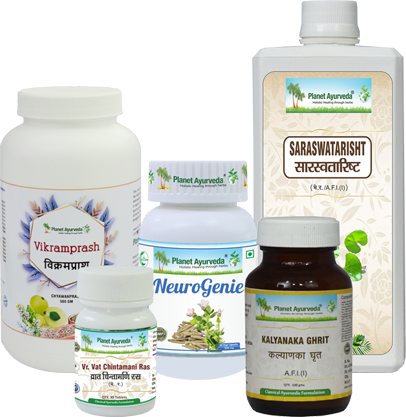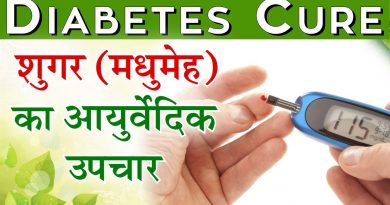Ayurvedic Treatment for Tardive Dyskinesia with Herbal Remedies
Abstract
Tardive dyskinesia is a syndrome that includes groups of iatrogenic movement disorders. Tardive dyskinesia is caused by long-term exposure to certain drugs like antipsychotics, and first and second-generation neuroleptics. It includes dystonia, myoclonus, tics, chorea, and other abnormal involuntary movements, etc. When we think of Tardive dyskinesia, antipsychotic medications come to mind but other medications can cause Tardive dyskinesia like Antiemetics. To confirm diagnosis of Tardive dyskinesia symptoms must persist for at least a month after discontinuation of the drugs. Tardive dyskinesia is a condition where we have a limited understanding of the cause and treatment.
Introduction
Tardive dyskinesia is the involuntary movements of the tongue, lips, trunk, face, etc, which interferes with the daily functioning of the patients. It includes smacking the lips, grimacing, etc. The meaning of Tardie is ‘arriving or coming late. Tardive dyskinesia is found in schizophrenia, bipolar disorder, and other neuropsychiatric disorders. It is the side effect of antipsychotic medications, these are dopamine receptor-blocking medications. Usually, these medications are used for mental illness. According to Ayurveda, this is due to vata dosha. Vata dosha has the function of mobility. When Vata dosha goes out of balance or gets aggravated there will be excessive movements of the body. Food that can aggravate vata dosha is dry, light food(popcorn), cold foods(smoothies), raw, frozen food, etc. Food that can pacify vata is Ghee, whole milk, hot soups, nuts, buttermilk, etc. The treatment for vata dosha is Basti (ayurvedic enema). Basti is called Ardha chikitsa (half treatment). It cleanses the accumulated toxins from the body related to vata dosha along with pitta and kapha, through the colon.

Causes of Tardive Dyskinesia
The Exact Cause of Tardive dyskinesia is Not Known But Can Develop Due To
- Long-term use of some medications like antipsychotics, antidepressants, anti-nausea, anti-seizure, etc.
- Stress
- Genetics
Risk Factors of Tardive Dyskinesia
- Age over 55
- Alcohol abuse
- Females who have gone through menopause
- Mood disorder
Signs and Symptoms
Tardive Dyskinesia Is The Involuntary Movements Of
- Facial muscles
- Trunk
- Limbs
- Tongue
- Neck
Facial Movements Are
- Facial grimacing (especially involving lower facial muscles)
- Lip smacking
- Tongue thrusting
- Rapid eye blinking
- Puffing your cheeks
Other Movements Are
- Restlessness
- Finger movements (piano playing movements)
- Walking like a duck-like gait
- Thrusting or rocking your pelvis
- Flap the arms.
Diagnosis
Diagnosis of tardive dyskinesia is done by history taking in which the doctor will ask about symptoms and history of medication. A physical examination of the patient like observing the face will be done. Symptoms might not appear for months or years so it can be hard to diagnose this. In the absence of any associated comorbidity, the lab investigations will be normal.
Ayurvedic Point of View
According to Ayurveda, there are three doshas – Vata, Pitta, and Kapha. Balance between these doshas is very important for a healthy body. In Tardive Dyskinesia there is vitiation of the vata dosha in our body. Vata dosha has the function of mobility. Vata dosha is dislodged in muscles, and joints to cause involuntary movements. The treatment for vata dosha is Basti (ayurvedic enema). Basti is called Ardha chikitsa(half treatment). It cleanses the accumulated toxins from the body related to vata dosha along with pitta and kapha, through the colon. According to Ayurveda an unctuous, sweet, and hot diet could be given. Food that helps to balance the Vata dosha is cow’s ghee, garlic, cooked carrots, cooked onion, cooked peas, pumpkin, zucchini, sweet potato, oats, Cow’s milk, Yoghurt etc.
Herbal Remedies for Tardive Dyskinesia from Planet Ayurveda
Planet Ayurveda provides wonderful herbal remedies for tardive dyskinesia such as Neurogenic Capsules, Kalyanaka ghrita, Vikramprash, etc. Planet Ayurveda is a worldwide Ayurvedic medicine company. These herbal remedies are free from any kind of side effects as there are no chemicals or preservatives used. The products of Planet Ayurveda are GMP-certified. These herbal formulations are prepared under the supervision of renowned Ayurveda experts.
Product Description
1. Neurogenic Capsules
This formulation is in capsule form. It contains Brahmi (Bacopa monnieri), Ashwagandha (Withania somnifera). It balances Vata dosha. This formulation has anxiolytic properties which helps in managing anxiety. It reduces serum cortisol levels which is a stress hormone.
Dosage– 2 capsules twice a day with plain water.
2. Kalyanaka Ghrita
This formulation is in ghrita form. It is a classical preparation which has Shweta sariva (Hemidesmus indicus), Krishna sariva (Ichnocarpus frutescens), Daruhaldi (Berberis aristata), Priyangu (Callicarpa macrophylla) etc. It helps in managing convulsions, tremors, etc. This formulation improves memory.
Dosage– 1 tablespoon twice a day with warm milk or water or as directed by a physician.
3. Vikramprash
This is a jelly-like preparation. This formulation contains bala(sida cordifolia), ashwagandha (withania somnifera), and amla (Emblica officinalis). This formulation has immunomodulatory properties which increase the disease-fighting capacity of the body. It also has anti-inflammatory properties. It helps to reduce stress, anxiety etc.
Dosage – 1 tablespoon twice a day.
4. Saraswatharisht
This is a liquid formulation. It contains brahmi (Bacopa monnieri), Haritaki (Terminalia chebula), and Vidari (Pueraria tuberosa). This formulation is an ayurvedic nervine tonic and is used to treat mental disorders like memory weakness etc.
Dosage – 2 tablespoons twice a day.
5. Vrihat Vatchintamani Ras
This formulation is in tablet form. It contains Swarna bhasma (Gold calyx), Loha bhasma (Iron calyx), Mukta bhasma (Pearl calyx), Abhrak bhasma (Mica calyx), etc. This helps to maintain the healthy functioning of the brain. This formulation helps to maintain the balance of Vata and Pitta dosha.
Dosage – 1 tablet twice a day with plain water.
Conclusion
Tardive dyskinesia is a physically disabling condition, which impacts on a patient’s quality of life. It is the side effect of antipsychotic medications like antipsychotic medications; these are dopamine receptor-blocking medications. Tardive dyskinesia is a condition where we have a limited understanding of the cause and treatment. We still do not have a clear understanding of the pathophysiology of this condition. According to Ayurveda, it is the vitiation of Vata dosha in our body. When Vata dosha goes out of balance or gets aggravated there will be excessive movements of the body. Planet Ayurveda provides the best and most effective combination of herbal remedies for tardive dyskinesia like Kalyanak ghrit, vikramprash, Vrihat vatchintamani ras, etc.





